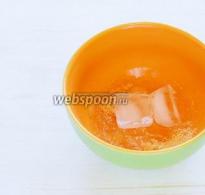Customs clearance of alcoholic products - customs services for the customs clearance of alcohol. Peculiarities of customs clearance of alcoholic beverages from Europe Excise taxes: rules and procedure for registration
Import of wine from Spain
Imported wines are in stable demand among Russian consumers. Every third bottle of wine sold in Russian stores is produced abroad. Most of all wine is imported from France, Italy and Spain, and the volume of imported products grows annually by 20-30%. For example, the import of Spanish wines in 2012 increased by 1,200,000 liters. This is due to the fact that more and more Russians prefer wine to other spirits.
What Spanish wines do Russian consumers drink? According to a study by the Economic Department of the Spanish Embassy in Moscow, the products of the Valencia and La Mancha regions are widespread due to their low price. Jerez wines are well-known in Russia, but they are poorly represented on the market, possibly due to their high prices. 60% of the products imported from Spain are used in Moscow. The average wholesale price for imported Spanish wines is around 1.4 euros per liter.
Studies of the network of wholesale centers "Selgros" show that three quarters of the wines consumed in Russia are sweet and semi-sweet, although there is a steady tendency to switch to dry wines. This is due, firstly, to a change in consumer tastes, and secondly, to an increase in excise taxes on wine drinks, which include sweet and semi-sweet wines.
The most famous wine regions of Spain are La Mancha, Rioja, Catalonia, Andalusia, Valencia, Leon, Extremadura. These regions account for most of the wine production. The best areas of winemaking have been awarded D.O. - denominación de origen, appellation of origin. The presence of this status means not only a certain geographic area, but also a special production process, peculiar only to this region. D.O. status indicated on the label and is a sign of the excellent quality of the product. The regions of Rioja and Priorat (Catalonia) have been awarded the status of DOC, denominacion de origen calificada, the mark of the highest quality of wine.
Spanish wines are divided according to the aging period into young (Joven), two-year-old (Crianza), three-, four-year-old (Reserva), at least five-year aging (Gran Reserva).
You can get acquainted with Spanish products and establish communication with manufacturers at trade exhibitions that are regularly held in Spain.
The leading exhibition of Spanish wine is "FenaVin". This is an international exhibition where leading producers from all areas of Spanish viticulture present their products. Visitors to this event will find a wide range of high quality wines there. The exhibition is held annually in May in the city of Ciudad Real. Exhibition website http://www.fenavin.com.
In April, Madrid hosts the Salon de Gourmets international food and beverage exhibition. Internet address https://www.gourmets.net/salon/
In Galicia, in the city of Ourense, the exhibition "Wines and Liqueurs of Galicia" is taking place. The exhibition is held in April.
"Salon of Spanish wines" is held in Russia in autumn. This exhibition helps Spanish manufacturers to establish contact with Russian distributors.
To import wine, you can use the services of a consolidator, a company that helps to find and send products of interest. Small Spanish producers usually have a hard time understanding the rules for exporting to Russia. It takes a lot of time to prepare the necessary documents, so it makes sense to use the services of an experienced intermediary. Experts help to negotiate and complete a transaction in accordance with the requirements of the legislation of both parties, and also carry out the customs clearance procedure, preparing documents for the import. The calculation of the cost of services is influenced by the cost of goods, quantity, places of shipment and delivery, weight, regularity of shipment. A customs broker carries out customs clearance of goods, minimizes the cost of customs clearance. This specialist is well aware of all the complexities of foreign economic contracts, he is competently negotiating at customs. If there are any problems, then the cargo can stand at customs for a long time. Fortunately, wine does not belong to perishable goods and does not require a special storage regime, but what kind of entrepreneur would like to wait a long time for the delivery of goods due to incorrect paperwork and pay extra money for renting a transport? The following services are provided to importers: execution of foreign economic contracts and maintenance of transaction passports; calculation of customs payments, import costs; conclusion of external economic agreements with foreign producers of alcoholic beverages; ordering and receiving excise stamps; delivery of products; ensuring payment of customs duties; customs clearance; storage of products in a commercial warehouse for up to 3 months with handling and sorting of goods; legal support on customs legislation and intellectual property issues; product certification; obtaining licenses from the Ministry of Trade for the import of alcoholic beverages; the possibility of settlements with suppliers under a letter of credit, deferred payment; insurance of supplies and cargo; development of transport routes for specific tasks of the client.
Any company engaged in the import of products carries out foreign economic activity (FEA). The imported goods are assigned a code according to the TN VED classifier (Trade nomenclature of foreign economic activity). For example, code 2204299200, high-quality sherry wine, with an actual alcohol concentration of more than 15 percent of the volume of finished products, but not more than 18 percent, in vessels with a capacity of not more than 2 liters; code 2204299500, port wine, high quality, with an actual alcohol concentration of not more than 18 percent of the volume of finished products, in vessels with a capacity of 2 liters or less; 2204299600, Madeira, Sherry and Muscatel Setubal wines, high quality, with an actual alcohol concentration of more than 18 percent of the finished product volume, but not more than 22 percent, in vessels with a capacity of 2 liters or less, etc. In the Russian TN VED there are more than 2, 5 thousand codes.
The amount of the customs fee depends on the type of wine, its value and quantity, and the cost of delivery. If cheap wine was bought, it will rise in price significantly when passing through Russian customs, because Russian legislation has its own ideas about the possible minimum cost of wine, and customs officers will proceed from these ideas when calculating customs duties. You can find out the amount of the duty on this website http://www.tks.ru/db/tnved/tree by selecting the appropriate product code. When importing products to Russia, you must also pay value added tax (VAT).
To import wine into Russia, you need to obtain excise stamps, since all alcoholic beverages intended for domestic consumption are subject to excise labeling. The excise stamp contains all the information about the imported wine and its manufacturer. Information from the stamp is entered into the database of the Federal Customs Service through the unified state automated information system (EGAIS). Stamps can be ordered at the customs office at the place of state registration of the organization. To receive them, no later than six days before the beginning of the month in which the stamps are needed, an application is submitted in two copies on paper, as well as an electronic copy. A copy of the certificate of conformity of technical means of fixing and transferring information about the volumes of production and turnover of alcoholic beverages to the unified state information system, a copy of the alcohol supply agreement, documents confirming the legality of the use of the trademark on alcoholic beverages, a copy of the license provided for by the Law on State Regulation of Production and Turnover is provided ethyl alcohol, alcoholic and alcohol-containing products. All copies must be properly certified. The number of brands must match the number of bottles specified in the foreign trade contract. From January 1, 2013, Russia began to issue new excise stamps for alcoholic beverages. The sale of products with old brands is allowed until September 1, 2015, and the import of products with old brands only until September 1, 2013. Cash for excise stamps is deposited in rubles to the account of the Federal Treasury of the Russian Federation.
The term for consideration of the application is five days. If all the documents are drawn up correctly and the money has arrived at the Treasury account, then the customs office registers the application and transfers the order for the production of stamps. Two days before receiving the manufactured stamps, the customs office notifies the importer. After the stamps are received by customs, the importing organization provides the following documents: a certificate of the absence of arrears in payment of customs payments, a written commitment to use the stamps for their intended purpose in two copies, a document confirming the security of the obligation. Stamps are issued to an organization only after the registration of obligations by customs.
Received stamps cannot be transferred from one organization to another. All damaged and unused stamps must be returned, the reasons for the return are stated in the written request. Unused stamps will not be refunded.
To organize customs clearance on your own, you need to go through the registration procedure at the customs post that will inspect the cargo first. Registration is required to obtain an individual customs number. This number is retained for all subsequent imports into the territory of the Russian Federation, which will be carried out by the organization. The head of the importing organization must go through an interview with the head of the customs post and provide him with the following documents: a statement of a participant in foreign economic activity, an extract from the Unified State Register of Legal Entities no more than a month old, certified copies of the statutory documents, a certified copy of the lease agreement, a certified copy of the lessor's ownership document, a certificate of banking accounts no more than a month old, an accounting report on the company's financial activities for the past period, a copy of the foreign economic contract, the original transaction passport, an order to appoint a company representative responsible for customs clearance of the cargo, a copy of his national passport.
To carry out customs declaration, the following documents will be required: constituent documents (charter, constituent agreement), registration documents (a certificate from the State Statistics Committee about the OKATO code, a certificate from the State Tax Inspectorate on the assignment of TIN and KPP), a contract for the supply of goods, permits (licenses and certificates ), financial documents (certificates from authorized banks on the availability of ruble and foreign currency accounts, a copy of the transaction passport issued by the bank in which the current account is opened, payment documents confirming the payment of customs payments), shipping documents (invoice, proforma invoice, packing lists, specifications, certificate of origin), transport documents (CMR, rail waybill, air waybill).
Wine importers are guided in their activities by Article 11 of the Federal Law No. 171-FZ "On state regulation of the production and circulation of ethyl alcohol, alcoholic and alcohol-containing products and on limiting the consumption (drinking) of alcoholic products". In accordance with clause 2.1 of this article, the turnover of alcoholic beverages with an alcohol content of more than 15 percent of the volume of finished products can only be carried out by enterprises with a paid-up authorized capital of at least 10 million rubles. If the alcohol content is less than 15 percent, the amount of the authorized capital is not established by law.
According to paragraph 2 of Article 18 11 of the Federal Law No. 171-FZ "On state regulation of the production and circulation of ethyl alcohol, alcoholic and alcohol-containing products and on limiting the consumption (drinking) of alcoholic products", the procurement, storage and supply of alcoholic beverages is subject to compulsory licensing. The license will allow you to work with all types of alcoholic beverages. The size of the state duty for the issuance of a license is established by paragraph 94 of Article 2 of the Federal Law of December 27, 2009 No. 374-FZ "On Amendments to Article 45 of Part One and Chapter 25.3 of Part Two of the Tax Code of the Russian Federation and certain legislative acts of the Russian Federation, as well as invalidation of the Federal Law "On fees for the issuance of licenses for the implementation of activities related to the production and circulation of ethyl alcohol, alcoholic and alcohol-containing products" and amounts to 500,000 rubles.
Licenses for the purchase, storage and supply of alcoholic beverages are issued by Rosalkogolregulirovanie. On their website http://www.fsrar.ru/ you can familiarize yourself with the regulatory framework and ask questions. There are two license options: for the sale of alcoholic beverages without limiting the strength and the sale of alcoholic beverages with a strength of less than 15 percent. For help in paperwork and obtaining a license, you can contact the Legal Licensing Center.
To obtain a license, you must provide the following documents:
- A notarized copy of the organization's charter.
- A notarized copy of the memorandum of association.
- Statement.
- A notarized copy of the certificate of entry into the Unified State Register of Legal Entities.
- An extract from the Unified State Register of Legal Entities (USRLE) not more than a month old.
- A notarized copy of the certificate of registration with the MNS.
- A notarized copy of the information letter on registration in the Statistical Register of Rosstat.
- A notarized copy of the protocols and orders on the appointment and replacement of the heads of the organization.
- A notarized copy of the Certificate of Title if the premises are owned.
- A notarized copy of the lease or sublease agreement, if the premises are rented. The minimum lease term is 1 year. The contract must be registered with the Rosreestr Office.
- A notarized copy of the BTI plan.
- A certificate from the owner on the condition of the premises in accordance with Form 5.
- The original of the SES conclusion.
- The original certificate of the INFS about the absence of arrears no more than a month ago.
- The original of the payment order for payment of the state duty with the bank's mark of execution.
- Organization card with all contact details.
The license is issued for 5 years. Documents for license renewal are submitted no earlier than 90 days before the license expiration date.
To obtain a sanitary and epidemiological conclusion, a package of documents is submitted to Rospotrebnadzor, including a certificate of registration, a certificate of registration with the tax inspectorate, an extract from the Unified State Register of Legal Entities, an enterprise card with details, a copy of the premises lease agreement, a copy of the lessor's ownership certificate, a copy of the export agreement garbage, a copy of the deratization agreement (all copies are notarized), the old conclusion (if any).
In order to import alcohol into the territory of the Russian Federation and sell alcohol, it is necessary to pass certification in the Unified State Automated Information System (EGAIS). EGAIS is the Unified State Automated System, which is designed to control the movement of alcohol from the producer to the counter. Regulatory documents related to the operation of this system can be found at http://egais.com/oegais.html. Installation of equipment, software, training of employees will cost more than 500,000 rubles.
Delivery of goods from Spain can be carried out by sea, by land (by car or train), by air. Most often, sea and road transport is used for cargo transportation.
The delivery time is influenced by the location of the dispatch point. The movement of trucks weighing more than 7.5 tons is limited in time in some regions from 24 hours to 22 hours. That is, you can move only two hours a day. These rules apply on the roads leading to Madrid and Barcelona. In the city, freight transport moves no faster than 50 km / h, outside the city no faster than 70 km / h, along highways no faster than 90 km / h.
Delivery of goods is carried out through consolidation warehouses. In Spain, there are few such warehouses, since the country is located away from the main logistics routes, therefore warehouses in Germany and Italy are often used, which significantly slows down the delivery process. The cost of transportation of one cubic meter of cargo, taking into account the use of consolidation warehouses in Italy and Germany, is about 250 euros.
By sea, delivery is carried out from Valencia or Barcelona to the Finnish ports of Kotika and Hamina, or to the Baltic ports in Klaipeda, Riga and Talin, from where the goods are transported by road. Delivery by water will be cheaper if the destination is Sochi, Tuapse or Novorossiysk. In other cases, the cost is comparable to the cost of trucking. Average duration of transportation is from two weeks.
Air transportation takes 2-3 days. The cost is calculated for each kilogram of weight. The weight of the cargo should not exceed 150 kilograms.
The company "Universal Freight Solutions" offers services for customs clearance of imports and exports, including such a service as alcohol customs clearance and alcoholic beverages. We will carry out customs clearance and certification of your batch of alcoholic beverages as quickly as possible, competently and at reasonable prices.
Alcoholic drinks are included in the group of excisable goods. This means that indirect taxes - excise taxes - are paid on their imports. Alcohol customs clearance presupposes its certification and labeling.
Alcoholic beverages are included in the group of excisable goods. Alcohol customs clearance involves the collection of an indirect tax - excise. Its value in 2012 increased by 30%. The tax is levied on legal entities licensed to transport alcoholic beverages. The excise tax does not apply to individuals due to the prohibition on the import of more than 2 liters of alcohol per person. If this requirement is violated, a simplified customs clearance procedure is applied - payment of a fine.
The excise rate can be:
- Ad valorem is a percentage of the customs value of imports
- Specific - calculated in rubles based on the cost of an import unit
- Combined - the total amount of excise tax calculated at the ad valorem and specific rate
Transportation of alcoholic beverages should only be carried out by licensed companies. It is associated with a number of risks, for example: with an increase in alcohol-containing components. Therefore, the transit of alcohol is carried out on special vehicles in compliance with the conditions for loading and unloading.
Customs clearance of alcohol and all types of alcoholic beverages
We carry out customs clearance or customs clearance of all types of alcohol and alcoholic beverages (spirits and low alcohol drinks) at any excise customs office in Russia - every day! The main positions drawn up by our company:
- Absinthe, Aquavit, Anise tincture, Arak, Armagnac, Balsam, Benedictine, Brandy, Bourbon, Vermouth, Wine, Whiskey, Cherry liqueur, Vodka, Mulled wine, Eggnog, Grappa, Grog, Gin, Calvados, Kashasa, Cognac, Liqueur Mead, Martini, Punch, Beer, Pisco, Rum, Sake, Moonshine, Slivovitsa, Alcohol, Tequila, Chartreuse, Champagne, Eg-nog
- and any others not specified in this list.
Certification of alcoholic beverages
Alcohol transportation requires mandatory product certification. It is carried out in the form of a declaration of conformity. The certificate confirms the quality of the import and its safety for human health. It is issued on the basis of a Protocol concluded by highly specialized laboratories that check the quality of imported products.
Certification of alcoholic beverages means checking the most important qualities of the product by authorized persons. So, in the case of wine products, this is the concentration of sugar, the proportion of ethyl alcohol, sulfur dioxide, etc.
Alcohol certification requires the following set of documents:
- Information about the product manufacturer (registration certificate and details)
- Information about the legal entity that signed the application for passing the certification procedure
- Alcoholic beverages document
- Contract for the import of products into the territory of Russia (copy)
- Product samples for examination
The certificate of conformity is issued in the form of a declaration for alcohol. To obtain this document, you need to submit an application for certification to a certification body.
Additionally, customs clearance of alcoholic beverages requires passing a sanitary and epidemiological examination. It confirms the compliance of products with the norms of the Customs Union.
Important! If a new type of alcohol is imported, then you will need to obtain a certificate of registration with Rospotrebnadzor. This document is required for passing the certification procedure.
All products that have passed the certification are marked with excise stamps. Such an event is carried out in order to control the circulation of goods. A stamp is a government reporting document confirming the legality of imported alcohol.
In order to comply with legal requirements alcohol customs clearance involves the following measures of customs control:
- verification of accompanying documentation and declared information - Article 367 of the Labor Code of the Russian Federation
- inspection of imported alcoholic beverages - Art. 371 of the Labor Code of the Russian Federation
- customs inspection of products - Art. 372 of the Labor Code of the Russian Federation
Transportation of alcoholic beverages by plane or other means of transport will not cause unnecessary worries if you choose a reliable carrier licensed to conduct the relevant activity.
Terms and cost of customs clearance of alcoholic beverages at customs
The customs clearance period for alcohol and alcoholic beverages takes 1 day on average!
The price or cost of services for customs clearance of alcohol and any other alcoholic beverages at customs provided by our company is the minimum on the market and is discussed individually depending on the place of customs and your tasks!
European alcohol is popular: French cognacs, Italian wines, beer from Germany, Czech Republic, Poland, whiskey from Great Britain and Ireland are in demand, and they promise to bring big profits to the trade organization. However, there may be problems with their customs clearance. passes according to a more complex scheme, since it refers to excisable goods. In addition, there are high import duties.
Excise taxes: rules and procedure for registration
Excise taxes apply to all liquid products containing ethyl alcohol. If we are talking about goods that do not belong to alcohol (suspensions, solutions, emulsions, etc.), only those that contain more than 9% alcohol are subject to excise duties. Excise drinks include drinks with an alcohol content of more than 1.5%.
Alcohol imported into Russia must have excise stamps. Labeling is required for wholesale and retail trade. It is carried out before being imported into the territory of the Russian Federation: alcohol will not be allowed through without excise stamps. The marking must be in Russian and have a barcode.
A legal entity registered in the Russian Federation and a Russian tax resident can obtain excise stamps. Individuals registered as individual entrepreneurs in Russia and participating in foreign economic activity will also be able to issue them.
The owner of the goods must provide the organization issuing excise stamps with all the necessary documents confirming the fact of purchase and the cost of the product. Alcohol must be certified in accordance with Russian standards, and the owner himself must have an appropriate license to transport and sell this type of product.
How and where does customs clearance take place?
 , which is imported into the territory of the Russian Federation by a legal entity or an individual entrepreneur, can be carried out only at special customs points. In particular, these are the Central Excise Customs or regional excise posts. The customs authorities are obliged to check the documents and conduct an inspection and inspection of the vehicle and the goods themselves. If any errors or attempted deception are discovered, the shipment will be detained and most likely confiscated.
, which is imported into the territory of the Russian Federation by a legal entity or an individual entrepreneur, can be carried out only at special customs points. In particular, these are the Central Excise Customs or regional excise posts. The customs authorities are obliged to check the documents and conduct an inspection and inspection of the vehicle and the goods themselves. If any errors or attempted deception are discovered, the shipment will be detained and most likely confiscated.
Regardless of whether the cargo was checked at the border customs point or not, you must submit the goods to the excise customs office within the specified time frame. Please note that the rules for registration in the Russian Federation, Republics and Kazakhstan are different. Excise taxes also differ. For this reason, registration is carried out only on Russian territory. There have been fewer regional excise customs posts in recent years, so it is important to choose an item in advance.
The customs post will help you if:
- you import alcohol for sale in Russia;
- you place goods in special storage locations;
- you are returning unused or damaged excise stamps;
- you have provided a report on the application of the marking.
Excise customs formalizes alcoholic beverages in the following order:
- Verification of documents. Inspectors check the documents not only for the correctness of filling, but also for the correctness of the facts. If the information does not correspond to reality (and if the customs officers have suspicions), the cargo may be detained pending clarification of the circumstances.
- Customs inspection. The inspector can visually inspect both the goods themselves and the vehicle on which the goods were delivered.
- Customs inspection. The customs officer has the right to demand that the packaging be opened and more thoroughly check the vehicle and cargo.
If during the check errors were found, non-compliance with the information specified in the documents, the cargo is detained. If it is proved that the owner deliberately misled the customs service, he will face administrative (and possibly criminal) liability.
Duties and excise taxes on alcohol are payable at the time of filing or until then. To do this, you need to calculate the exact amount of duties and taxes.
What documents are required for customs clearance of alcoholic beverages?
As in the case with other goods from Europe, when customs clearance of alcoholic beverages, customs officers need to provide an agreement with the seller, documents confirming payment, invoices, transport documents, and a declaration. In addition, the buyer should take care in advance:
- on a license for its activities (and the sale of alcohol in Russia is licensed);
- on certification of products imported into the territory of the Russian Federation;
- on the preliminary receipt of excise stamps (in some cases, they must be glued to alcoholic beverages).
Alcohol is subject to duty, excise and VAT. You also need to pay customs fees.
The five leading importers of Georgian wines: Russia (its share is more than 50%), Kazakhstan (19%), Ukraine, Poland and China.
The introduction of a ban on the import of wine from Georgia, the discovery of heavy metals in them in 2006 forced the Georgian authorities and winemakers to reconsider approaches to quality control and actively resist counterfeiting. The ban on the export of wine from Georgia to Russia was lifted in 2013. Today, most vineyards are certified, over 15 of the most popular types of wine are tied to a specific region of origin, each bottle is kept in a single database.
So, how to open your own business on the import of Georgian wines without intermediaries?
First of all, for the purchase, sale and storage of wine, you will need to issue a license, which is issued for a period of 5 years. After that - to connect to the unified state automated system (EGAIS), without this, import, and any activity related to alcohol, is considered illegal.
After that, it is worth deciding on the imported assortment. According to statistics, the sales leaders among Georgian wines are red semi-sweet "Kindzmarauli" and red dry "Mukuzani", in second place - "Tsinandali", in third - "Akhasheni" and "Khvanchkara".
An important point is the choice of the manufacturer. The list of Georgian wineries, producers of mineral water and cognacs can be found on the Internet, there is also an extensive list of companies admitted to state registration to enter the Russian market. Recognized industry leaders - Marani and Dugladze Wine House, IDS Borjomi, etc.
After the choice of the imported type of wine and the supplier, it is necessary to sign an agreement with the winery - a foreign economic activity contract. If you do not have your own specialists in foreign economic activity, you can contact an intermediary.
The list of distributors, Internet shops of Georgian wines in Russia and the CIS countries is easy to find on the net. For a certain margin, they provide consulting services in customs clearance, assistance in obtaining licenses, certificates, excise duty.
Since 2016, the excise tax on wine has increased from 8 to 9 rubles. The exception is wines with protected geography, here the rate is 5 rubles. from a bottle, 13 rubles. - for sparkling wine. All wines containing more than 9% ethyl alcohol are subject to excise duty. In order to obtain excise stamps, information from which is entered into the database through the Unified State Automated Information System, it is necessary to submit applications in paper and electronic form to the Unified State Automated Information System, confirm the compliance of the accounting technology for the turnover of alcoholic beverages, attach copies of the alcohol trade license and the contract.
For each consignment of goods, Rospotrebnadzor is provided with wine samples for laboratory testing for compliance with the standards and the declared quality. After checks and in the absence of complaints, a conclusion is issued, which will be requested by the customs.
For imported products, a ten-digit code is defined in the nomenclature of goods for foreign economic activity, and the amount of customs payments is easily calculated using it. The value declared by the importer is controlled by the customs authorities. In Russia, the entire turnover of Georgian wine passes through the Alabinsky customs station.
The customs office checks the safety of the seals of the cargo and the presence of invoices, proformas, packing lists, specifications, certificates of origin and transport documents.
After the customs clearance process, Georgian wine is ready for sale. Those wishing to open their own business in this area should take care in advance not only of finding customers, but also of a place to store wine in compliance with the required temperature regimes.
Import of wine from Georgia to Russia
In 2016, 5.9 million bottles were imported from Georgia to Russia, according to the Georgian Ministry of Agriculture. Also, Georgian brandy (total import volume of 2.7 million), chacha, cognac alcohol, wine materials are very popular with imports.
The new rules of the Central Excise Customs may lead to higher prices for inexpensive imported wines. Suppliers complain that the minimum customs value of wine, with which a 20% duty is levied upon import into Russia, has increased, for example, for products from France by 50%, to $ 15 per liter, from Italy - by 75%, to 7 dollars. When converted into European currency, it turns out that in these countries there is no wine cheaper than 8 and 3.7 euros for a bottle of 0.75 liters. Importers interviewed by RBC daily claim that this is not the case and doubt the legality of the new customs rules.
Barely recovering from the stress associated with the difficult license renewal procedure, Russian wine importers faced another problem. Since June 1, the Central Excise Customs has significantly increased the minimum cost of table wine imported into Russia from a number of European countries, which automatically increased the costs of suppliers to pay the duty. The customs duty for the import of wine is 20% of the purchase price. At the same time, there is the concept of the so-called control level of the customs value - this is the price below which, in the opinion of customs officials, it is impossible to buy wine abroad.
For different countries, there are different control levels of customs value: for example, the minimum price of 1 liter of French wine until recently was set at $ 10 (or 5.4 euros for a bottle of 0.75 liters), for Italian wine - $ 4 (2 , 15 euros per bottle). Similar pricing norms were approved by the customs several years ago and were perceived in the market as adequate.
However, from June 1, 2011, the Central Excise Customs revised the minimum price levels for table wine from European countries, significantly raising the bar. Now the cheapest French wine needs to be cleared at the cost of $ 15 per liter (8 euros per bottle), Italian - 7 dollars (3.7 euros).
Representatives of importing companies told RBC daily that these innovations were an unpleasant surprise for them. According to them, customs officials refuse to present a document on the basis of which the control levels for table wines from Europe were increased. At the same time, the importers assure that the department had no objective reasons to introduce new customs rules.
According to the Association of Wine Importers (AIV), at least 40% of European table wines cost less to purchase than the new rules set.
The Central Excise Customs could not promptly comment on the introduction of new rules for the import of wines: the press service of the department was asked to send a request by fax.
“We consider the actions of the customs to be illegal,” a manager of one of the largest wine importing companies told RBC daily. “There is no concept of“ black prices ”in Europe, and we can guarantee that we buy table wines at fair prices, which are significantly lower than those set by the excise customs."
Suppliers are now calculating how much they will have to increase selling prices for their cheapest products. As the financial department of the largest Russian importer, Luding, told RBC daily, the selling price for Spanish wines will rise by 20%, French - up to 30%, Italian - up to 40%.
“Naturally, the consumer will have to pay for the increase in our costs at customs,” states the manager of a company engaged in customs clearance of imported wine consignments. - Wholesalers will include all their additional costs in the price of the product. Perhaps some positions will disappear from the shelves altogether. " According to the interlocutor of RBC daily, importers may refuse to import the most democratic table wines from Europe, as their customs clearance will cost more than their actual price. “It can be predicted that in this situation there will be replacement of cheap European wines by Chilean and Californian brands, the reference level for which has not grown”, he adds.

AIV assured RBC daily that they would deal with this problem in the hope of finding a compromise with customs officials. "We sent letters to the head of the Central Excise Customs Kozinitsky and the head of the FCS Belyaninov, in which we asked them to provide clarifications on the introduction of new rules for the payment of customs duties on imported wines and offered to hold joint workshops to find a balance between private and public interests,"- told RBC daily AIV President Mikhail Blinov .
In his opinion, with an increase in the tax burden on imported wines, the state may not increase, but reduce budget revenues from imports due to a drop in consumer demand.






